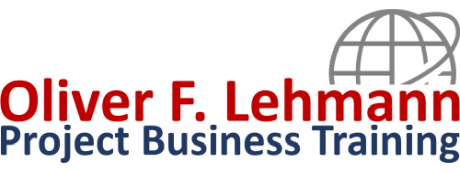
Certification
On this page: Business cases | Comparison | Selection | PMP | CAPM | PMP & CAPM Combination | PBP | ACE

The Business Case for Your Certification Initiative
For Internal Projects
Corporations with internal projects use certification initiatives to improve the standing of their project managers.
Skill and expertise shown by your Project Managers directly impact the success of your organization’s projects. Certification validates their education and signals their dedication to the profession, ultimately strengthening their role within the company and toward contractors.
A professional trainer turns exam preparation into an intensive, enjoyable, and inspirational learning journey. However, this is often not enough when students need help to keep their spirits up and not drop out halfway.
As a dedicated trainer, I offer unyielding encouragement and support to Project Managers in pursuing individual certification goals. I assist and motivate them throughout the journey, from the first contact until they successfully pass the exam. At this point, I congratulate them and say, “Welcome to the Club.”
For Customer Projects
Customer projects are profit centers. Certified Project Managers positively influence the bottom line in Project Business.
Certified Project Managers on your team are often the deciding factor in winning valuable business opportunities, as it is often a preferred or even critical requirement for buying organizations before they award the contract. They also justify higher rates and prices.
Later, when you have secured the contract, certification elevates your Project Managers’ reputation and standing as pros when working with the client organizations.
The daily schedule of a Project Manager overseeing a project as a profit center can be quite hectic, making it easy to lose focus. However, dedicated guidance helps them stay on track and stride forward toward a successful examination.
This is where I come in as a trainer. For PMI examinations, I translate the mostly internal topics into the language of Project Business. And for all certifications, I stay positively connected with my students until they take and pass the exam.


The Certifications – Comparison
| Subject matter | Project Management | Project Management | Project Business Management | Project Business Management |
| Targeted audience | Beginners | Pros | Beginners & Pros | Experts |
| Core topics | Fundamentals, approaches from agile to predictive, and business analysis | People, process, and business environment | Organizational, commercial, and legal aspects of cross-corporate projects | Consultation to and education of practitioners in project business |
| Pre-requisites for eligibility | Training | Experience & training | Training | Experience |
| Exam preparation class | 3 days (23h) | 5 days (35h) | 2 days (14h) | n/a |
| Benefit of being certified | Blend in* | Blend in* | Stand out* | Stand out* |
| Investment in time & money | Moderate | High | Low | High |
| Based on | Exam | Exam | Exam | Assessment |
| Exam duration | ~3h | ~4h | 1h | n/a |
| Difficulty of the exam | Moderate | High | Low to moderate | n/a |
| Usable for a corporate development program | Yes | Yes | Yes | Yes |
| Details | CAPM Exam Content Outline | PMP Exam Content Outline | PBP Handbook | ACE Handbook |
Badge


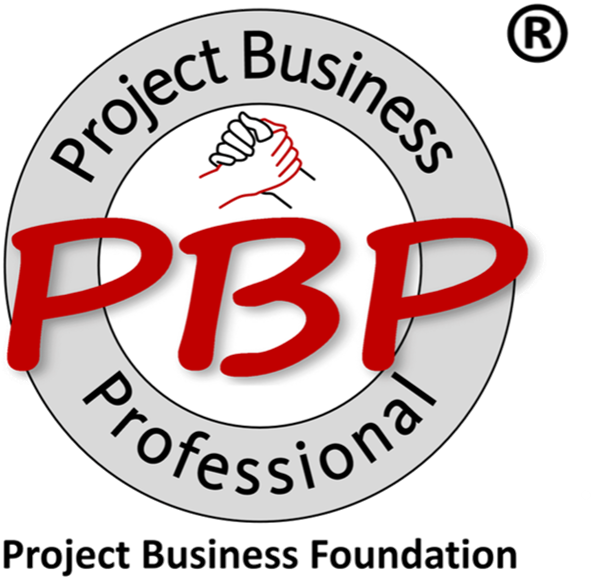
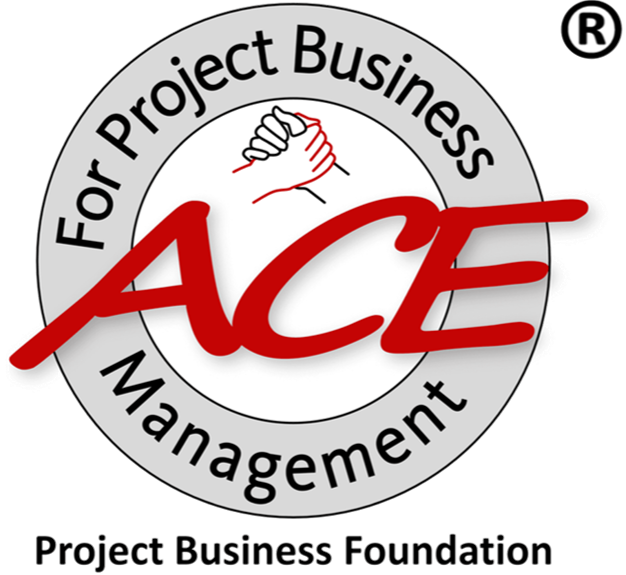
*: Blend in – not having the certification is a disadvantage. Stand out – the certification “distinguishes from the pack”.

Select the Best Certification for Your Qualification Program
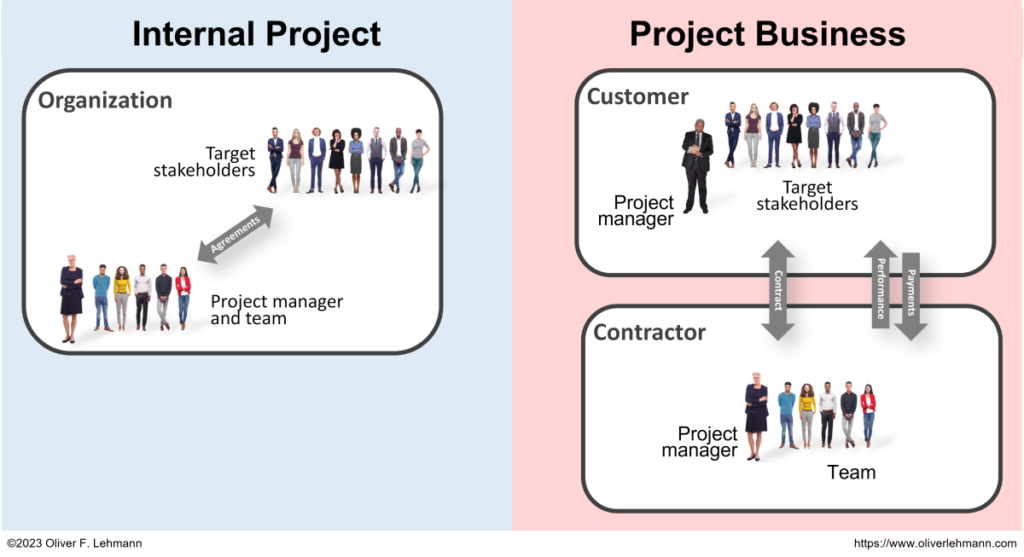
Depending on the kind of projects you do, different certifications will be most beneficial to you. The following descriptions help you find out which is best for you.
Chose the description that best matches your portfolio of projects and your intentions:
1. For internal projects
Recommended:
Internal projects performed with internal project teams as temporary cost centers—this is the focus area of the certificates of PMI, the Project Management Institute. The biggest challenges are
- Mastering terminology
- Having an eye on scope, time, and costs but also on the people
- Complying with the requirements of management and other high-level stakeholders
- Bringing employees in and managing them as the project’s human resources
- Navigating systems of power and politics
- Managing internal conflicts
- Understanding and meeting internal requirements
- Understanding and aligning with corporate business needs and strategy
During CAPM preparation for beginners and PMP for experienced project managers, I familiarize students with terminology, tools, techniques, and behaviors that help meet these challenges.
After successfully passing the exam, this is documented with the badge of PMI.
2. For customers in project business
Recommended:
This block addresses project customers who perform internal projects, cost centers, but hand the work mostly or in full to contractors. Here, the biggest challenges are.
- Mastering terminology
- Having an eye on scope, time, and costs but also on the organizations involved and their business interests
- Dealing with the requirements of management and other high-level stakeholders
- Acquiring contractors and managing them as providers of resources to the project
- Navigating systems of business interests, power, and politics
- Managing internal and cross-corporate conflicts
- Understanding and meeting internal and external requirements
- Understanding and aligning with corporate business needs and strategy
- Protecting the organization from legal conflicts
The task of managing projects with contractors—often vast networks of contractors in mega-projects—includes the tasks of managing an internal project and reaching out over the borders to one or more contractors to turn their assets into project resources.
The internal part of the challenge is addressed during the PMP preparation and exam. If the organization intends to improve the internal aspects of its projects, PMP will be more effective.
Reaching out to and managing contractors is the domain of the PBP certification. It is the best choice for organizations that intend to improve the cross-corporate success of their projects.
3. For project contractors
Recommended:
For contractors*, projects are profit centers. The biggest challenges are.
- Mastering terminology
- Winning the business during bid/proposal/pitch phases
- Having an eye on scope, time, and costs but also on the projects margins
- Ensuring timely payments from the customer to protect the organization’s credit line
- Dealing with the requirements of management and other high-level stakeholders across two or more organizations
- Navigating systems of business interests, power, and politics
- Managing internal and cross-corporate conflicts
- Understanding and meeting internal and external requirements
- Understanding and aligning with corporate business needs and strategy
- Protecting the organization from legal conflicts
The task of managing projects as contractors has several tasks: Winning the business, managing it as a project, and making this project commercially successful.
The PMP certification is an effective tool for winning new business. If the organization intends to improve its hit rates and bring in more attractive Project Business, this certification will be the best choice. It also helps improve the standing of the project manager toward the customer in difficult moments
Making the project a commercial success is the home domain of the PBP certification. Addressing all the caveats on the way, it helps organizations turn the focus on managing the business and legal aspects of customer projects.
*: This includes prime contractors and subcontractors.
4. For consultancies and training providers
Recommended:
For consultancies and training providers, Project Business comes as an attractive market. However, it also has its challenges.
- Mastering terminology
- Building expertise in the complex field as an early adopter
- Signaling the proficiency of trainers, consultants, and other experts to prospective and actual customers
- Overcoming the lack of support by associations, academia, research, literature
The task of managing projects as contractors has several tasks: Winning the consulting or training business, managing it as a project, and making this project commercially successful.
Making the consulting/training business a commercial success is the domain of the ACE certification. Candidates are guided through an interactive process that helps them build knowledge and understanding and be valuable as a skill-builder in Project Business.

PMP
Project Management Professional
Certification provider:
Project Management Institute (PMI)
Target Audience:
Project Managers with at least a Bachelor’s degree and 36 months of experience (60 months with Highschool degree)
Seminar duration:
5 days / 35 contact hours
(Meets PMI’s requirement for exam eligibility)
Seminar type options:
On-site – virtual – hybrid
(Hybrid: Some students attend on-site, others via video conferencing)
Seminar style:
Lecture, discussion, practice tests
Official badge:

Agenda:
I offer ATP and non-ATP classes. Both are accepted by PMI:
Course Outline – ATP classes:
We use PMI’s official courseware, augmented with my material. ATP classes are done with a PMI-Authorized Training Provider as prime contractor.
Day 1
- The process for exam preparation and application at PMI
- This section helps attendees follow step-by-step the process that leads to acceptance of their application by PMI and to finally pass the exam, ideally on the first attempt.
- The source documents
- This section helps attendees understand the literature that is necessary to pass the exam and assess their self-learning needs after the seminar.
- PMBOK Guide
- Agile Practice Guide
- Process Groups – A Practice Guide
- PMI’s syllabus of the examination: The official PMP Examination Content Outline (PMP-ECO)
- Further documents
- Lesson 1: Business Environment
- This section helps attendees understand the embedding of projects in the corporate and business environment.
- Foundation
- Strategic Alignment
- Project Benefits and Value
- Organizational Culture and Change Management
- Project Governance
- Project Compliance
Day 2
- Lesson 2: Start the Project
- This section helps attendees master the critical moment in the project (and the exam) when the project is authorized and started.
- Identify and Engage Stakeholders
- Form the Team
- Build Shared Understanding
- Determine Project Approach
Day 3
- Lesson 3: Plan the Project
- This section helps attendees understand and implement various planning methods.
- Planning Projects
- Scope
- Schedule
- Resources
- Budget
- Risks
- Quality
- Integrate Plans
Day 4
- Lesson 4: Lead the Project Team
- This section helps attendees understand and implement Leadership and team building methods.
- Craft Your Leadership Skill
- Create a Collaborative Project Team Environment
- Empower the Team
- Support Team Member Performance
- Communicate and Collaborate with Stakeholders
- Training, Coaching and Mentoring
- Manage Conflict
Day 5
- Lesson 5: Support Project Team Performance
- This section helps attendees understand how they can positively influence the team’s performance.
- Implement Ongoing Improvements
- Support Performance
- Evaluate Project Progress
- Manage Issues and Impediments
- Manage Changes
- Lesson 6: Close the Project/Phase
- This section helps attendees understand the final activities when the project work has been finished.
- Project/Phase Closure
- Benefits Realization
- Knowledge Transfer
- Next steps to prepare for the PMP exam
- This section helps attendees define their personal roadmap of actions to exam success after the class.
Course Outline – Non-ATP classes:
We use my courseware and follow PMI’s official Examination Content Outline.
Day 1
- The process for exam preparation and application at PMI
- This section helps attendees follow step-by-step the process that leads to acceptance of their application by PMI and to finally pass the exam, ideally on the first attempt.
- The source documents
- This section helps attendees understand the literature that is necessary to pass the exam and assess their self-learning needs after the seminar.
- PMBOK Guide
- Agile Practice Guide
- Process Groups – A Practice Guide
- PMI’s syllabus of the examination: The official PMP Examination Content Outline (PMP-ECO)
- Further documents
- Introduction to project management approaches
- This section helps attendees navigate through the basic approaches that are being hotly debated in the Project Management Profession and deal with their impact on the exam.
- Predictive
- Rolling wave
- Agile
- Hybrid
Day 2
From here on, the seminar follows PMI’s official PMP-ECO (PMP Examination Content Outline)
- PMP-ECO Performance Domain 1: People
- This section helps attendees master the soft-skills part of the exam including leadership, team building, and conflict management.
- Managing conflicts
- Building and developing teams
- Addressing and resolving impediments
- Coming to agreements
- Engaging stakeholders
- Develop a shared understanding
- Managing virtual teams
Day 3
- PMP-ECO Performance Domain 1: People (cont’d)
- Agreeing on ground rules
- Mentoring to promote new generations of project managers
- PMP-ECO Performance Domain 2: Process
- This section helps attendees understand and implement various methods and approaches as a toolbox for ever-changing requirements.
- Create business value
- Ensure effective communications
- Managing risksManaging stakeholders
- Working with limited budget & resources
- Developing and tracking a schedule
Day 4
- PMP-ECO Performance Domain 2: Process (cont’d)
- Improving QualityManaging project scopeIntegrating the various aspects of the projectManaging changes to the projectPerforming procurementCreating artifacts and deliverables
- Selecting the best approach
Day 5
- PMP-ECO Performance Domain 2: Process (cont’d)
- Creating the governance structureAddressing and resolving issuesEnsuring project continuity
- Closing the project
- PMP-ECO Performance Domain 3: Business Environment
- This section helps attendees understand the interactions between the organization and the project.
- Assuring project compliance
- Planning and creating benefits and value
- Addressing external environmental change
- Addressing organizational change
- Next steps to prepare for the PMP exam
- This section helps attendees define their personal roadmap of actions to exam success after the class.
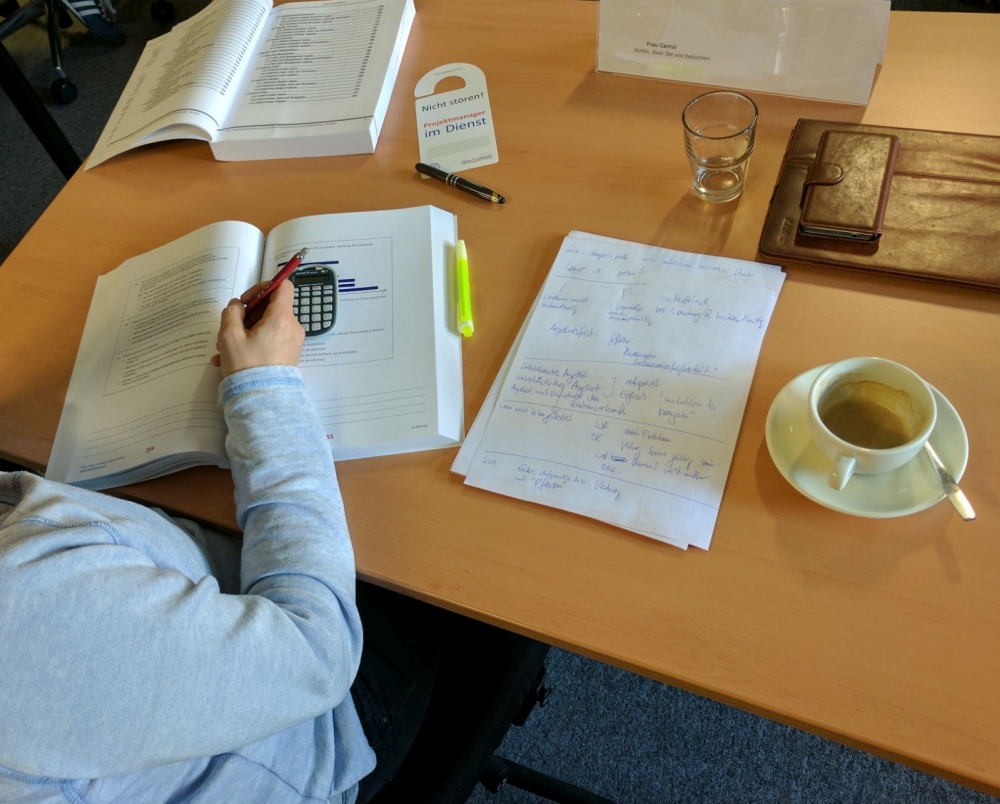

CAPM
Certified Associate in Project Management
Certification provider:
Project Management Institute (PMI)
Target Audience:
Entry-level Project Managers with at least an Associate degree who do not meet the pre-requisites of the PMP certification
Seminar duration:
3 days / 23 contact hours
(Meets PMI’s requirement for exam eligibility)
Seminar type options:
On-site – virtual – hybrid
(Hybrid: Some students attend on-site, others via video conferencing)
Seminar style:
Lecture, discussion, practice tests
Official badge:

Agenda:
Course Outline:
We use my courseware and follow PMI’s official Examination Content Outline.
Day 1
- The process for exam preparation and application at PMI
- This section helps attendees follow step-by-step the process that leads to acceptance of their application by PMI and to finally pass the exam, ideally on the first attempt.
- The source documents
- This section helps attendees understand the literature that is necessary to pass the exam and assess their self-learning needs after the seminar.
- PMBOK Guide
- Agile Practice Guide
- PMI Guide to Business Analysis
- PMI’s syllabus of the examination: The official CAPM Examination Content Outline (CAPM-ECO)
- Further documents
From here on, the seminar follows PMI’s official CAPM-ECO (CAPM Examination Content Outline)
- CAPM-ECO Domain 1: Project Management Fundamentals and Core Concepts
- This section helps attendees navigate through the basic approaches and deal with their impact on the project (and the exam).
- Project life cycles and processes
- Project management planning
- Project roles and responsibilities
- Strategies and frameworks
- Problem-solving tools and techniques
Day 2
- CAPM-ECO Domain 2 Predictive, Plan-Based Methodologies
- This section helps attendees master the traditional methods that bring predictability and order into the project.
- Appropriateness of predictive, plan-based approaches
- Project management plan
- Schedule
- Project controls
- CAPM-ECO Domain 3 Agile Frameworks/Methodologies
- This section helps attendees master the agile methods that bring adaptivity into the project.
- Appropriateness of adaptive approaches
- Planing project iterations
- Documenting project controls for an adaptive project.
Day 3
- CAPM-ECO Domain 3 Agile Frameworks/Methodologies (cont’d)
- Components of an adaptive plan.
- Preparing and executing task management steps.
- CAPM-ECO Domain 4: Business Analysis
- This section introduces attendees to the basics of Business Analysis.
- Business analysis (BA) roles and responsibilities
- Stakeholder communication
- Gathering requirements
- Product roadmaps
- How project methodologies influence business analysis processes
- Validating requirements through product delivery
- Next steps to prepare for the CAPM exam
- This section helps attendees define their personal roadmap of actions to exam success after the class.
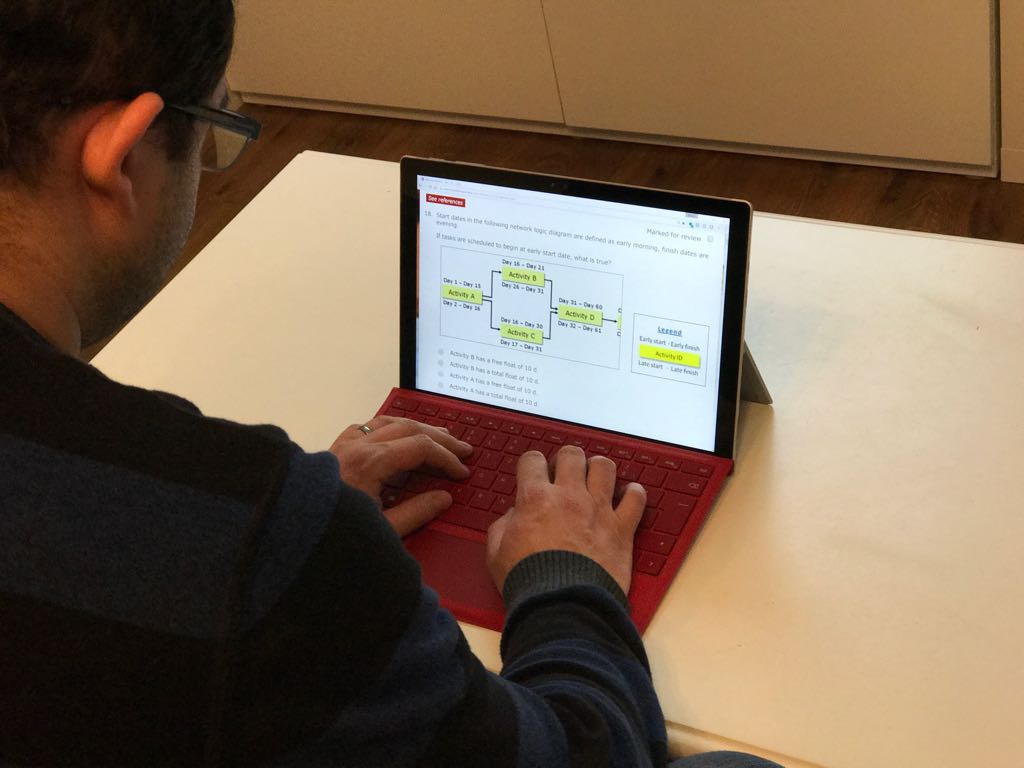

PMP & CAPM Mixed Seminar
Project Management Professional & Certified Associate in Project Management
Exam preparation:
Combined preparation for PMP and CAPM certification for mixed audiences of candidates
Certification provider:
Project Management Institute (PMI)
Target Audience:
- PMP: Project Managers with at least a Bachelor’s degree and 36 months of experience (60 months with Highschool degree)
- CAPM: Beginners with at least an Associate degree
Seminar duration:
5 days / 35 contact hours
(Meets PMI’s requirement for exam eligibility for both certificates)
Seminar type options:
On-site – virtual – hybrid
(Hybrid: Some students attend on-site, others via video conferencing)
Seminar style:
Lecture, discussion, practice tests
Official badges:


Agenda:
Course Outline:
We use my courseware and follow PMI’s official Examination Content Outlines.
Day 1
- The process for exam preparation and application at PMI
- This section helps attendees follow step-by-step the process that leads to acceptance of their application by PMI and to finally pass the exam, ideally on the first attempt.
- The source documents
- This section helps attendees understand the literature that is necessary to pass the exam and assess their self-learning needs after the seminar.
- PMBOK Guide
- Agile Practice Guide
- Process Groups – A Practice Guide
- PMI’s syllabus of the examination: The official PMP Examination Content Outline (PMP-ECO)
- Further documents
- Introduction to project management approaches
- This section helps attendees navigate through the basic approaches that are being hotly debated in the Project Management Profession and deal with their impact on the exam.
- Predictive
- Rolling wave
- Agile
- Hybrid
Day 2
From here on, the seminar follows PMI’s official PMP-ECO (PMP Examination Content Outline) with additional reference to PMI’s official CAPM-ECO:
- PMP-ECO Performance Domain 1: People
- This section helps attendees master the soft-skills part of the exam including leadership, team building, and conflict management.
- Managing conflicts
- Building and developing teams
- Addressing and resolving impediments
- Coming to agreements
- Engaging stakeholders
- Develop a shared understanding
- Managing virtual teams
Day 3
- PMP-ECO Performance Domain 1: People (cont’d)
- Agreeing on ground rules
- Mentoring to promote new generations of project managers
- PMP-ECO Performance Domain 2: Process
- This section helps attendees understand and implement various methods and approaches as a toolbox for ever-changing requirements.
- Create business value
- Ensure effective communications
- Managing risksManaging stakeholders
- Working with limited budget & resources
- Developing and tracking a schedule
Day 4
- PMP-ECO Performance Domain 2: Process (cont’d)
- Improving QualityManaging project scopeIntegrating the various aspects of the projectManaging changes to the projectPerforming procurementCreating artifacts and deliverables
- Selecting the best approach
Day 5
- PMP-ECO Performance Domain 2: Process (cont’d)
- Creating the governance structureAddressing and resolving issuesEnsuring project continuity
- Closing the project
- PMP-ECO Performance Domain 3: Business Environment
- This section helps attendees understand the interactions between the organization and the project.
- Assuring project compliance
- Planning and creating benefits and value
- Addressing external environmental change
- Addressing organizational change
- Business Analysis Framework
- Roles & responsibilities
- Stakeholder communication
- Product roadmaps
- Next steps to prepare for the PMP exam
- This section helps attendees define their personal roadmap of actions to exam success after the class.
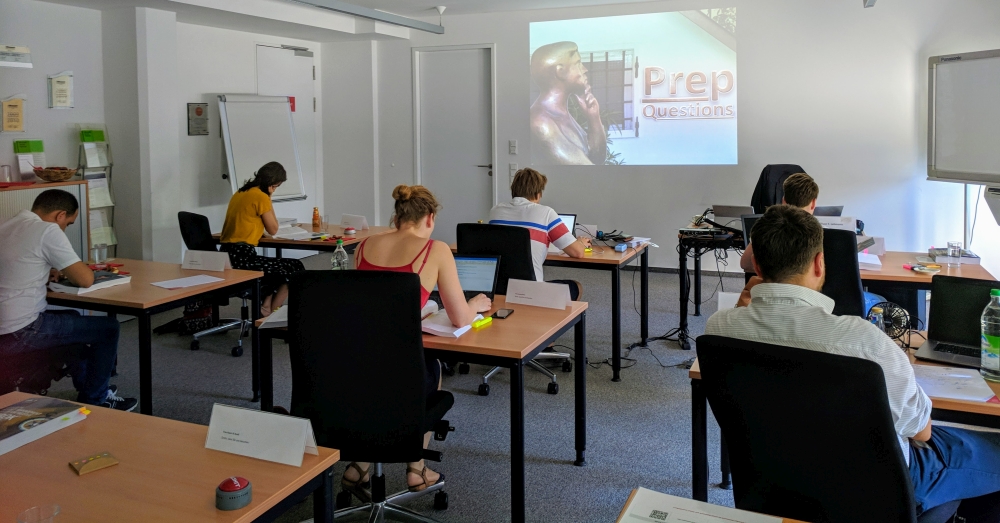

PBP
Project Business Professional
Certification provider:
Project Business Foundation
(Note: The Project Business Foundation is a platform dedicated to the Project Business Management discipline owned by Oliver F. Lehmann)
Target Audience:
Project Managers and everyone else who is practically involved in Project Business for contractor or customer organizations
Seminar duration:
2 days / 14 contact hours
Seminar type options:
On-site – virtual – hybrid
(Hybrid: Some students attend on-site, others via video conferencing)
Seminar style:
Lecture, discussion, practice tests
Official badge:

Agenda:
Course Outline:
We use the courseware of the Project Business Foundation.
Day 1
- Introduction
(This section separates Project Business Management from internal project management and addresses the basic principles and challenges)- What is Project Business?
- When the Project is the Business
(This section details how organizations and individuals interact in cross-corporate Project Business and how they con contribute to both project success and business success)- Players & roles
- The customer-contractor interface
- Legal & commercial factors
- Interpersonal relationship and leadership
- Integrity
Day 2
- Along the Process for Project Business
(This section explains common phases in Project Business from the first contact to the final close-down of the project)- The overall process and decision points
- Business development
- Carrying out the work
- Contract Knowledge for Project Business
(This section prepares professionals in Project Business for contractual knowledge with respect to different legal systems)- Contract types
- Other forms of project business
- Next Steps for You


ACE
Approved Consultant & Educator for Project Business Management
Certification provider:
Project Business Foundation
(Note: The Project Business Foundation is a platform dedicated to the Project Business Management discipline owned by Oliver F. Lehmann)
Target Audience:
Trainers, coaches, consultants, and everyone else who is methodically involved in Project Business for contractor or customer organizations
Duration of the certification:
Self-paced
Certification process:
Creation of three submissions, which may be
- Articles
- Presentations
- Videos
- Interviews
- Other forms of submissions that show dedication to Project Business Management
Official badge:


